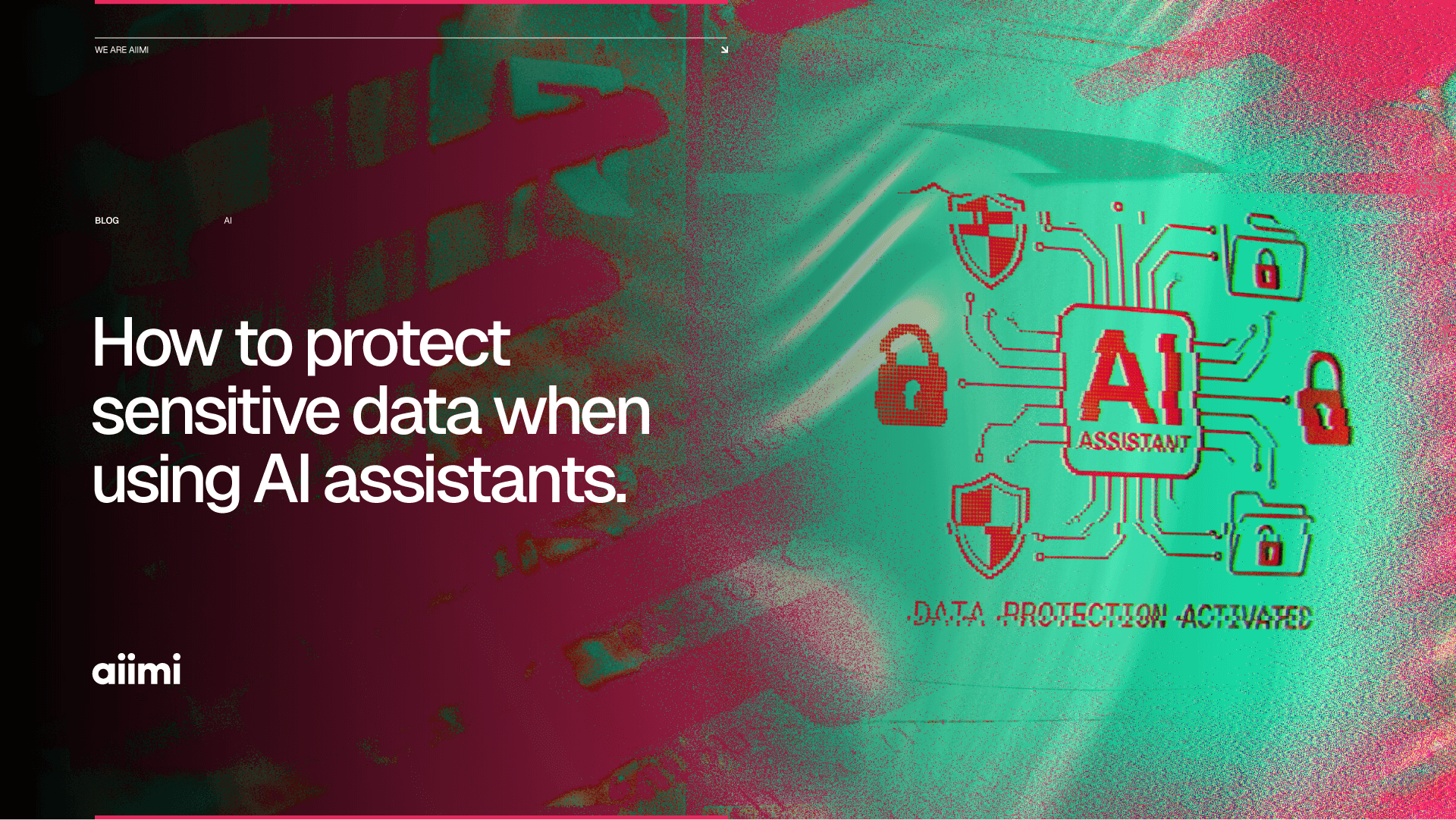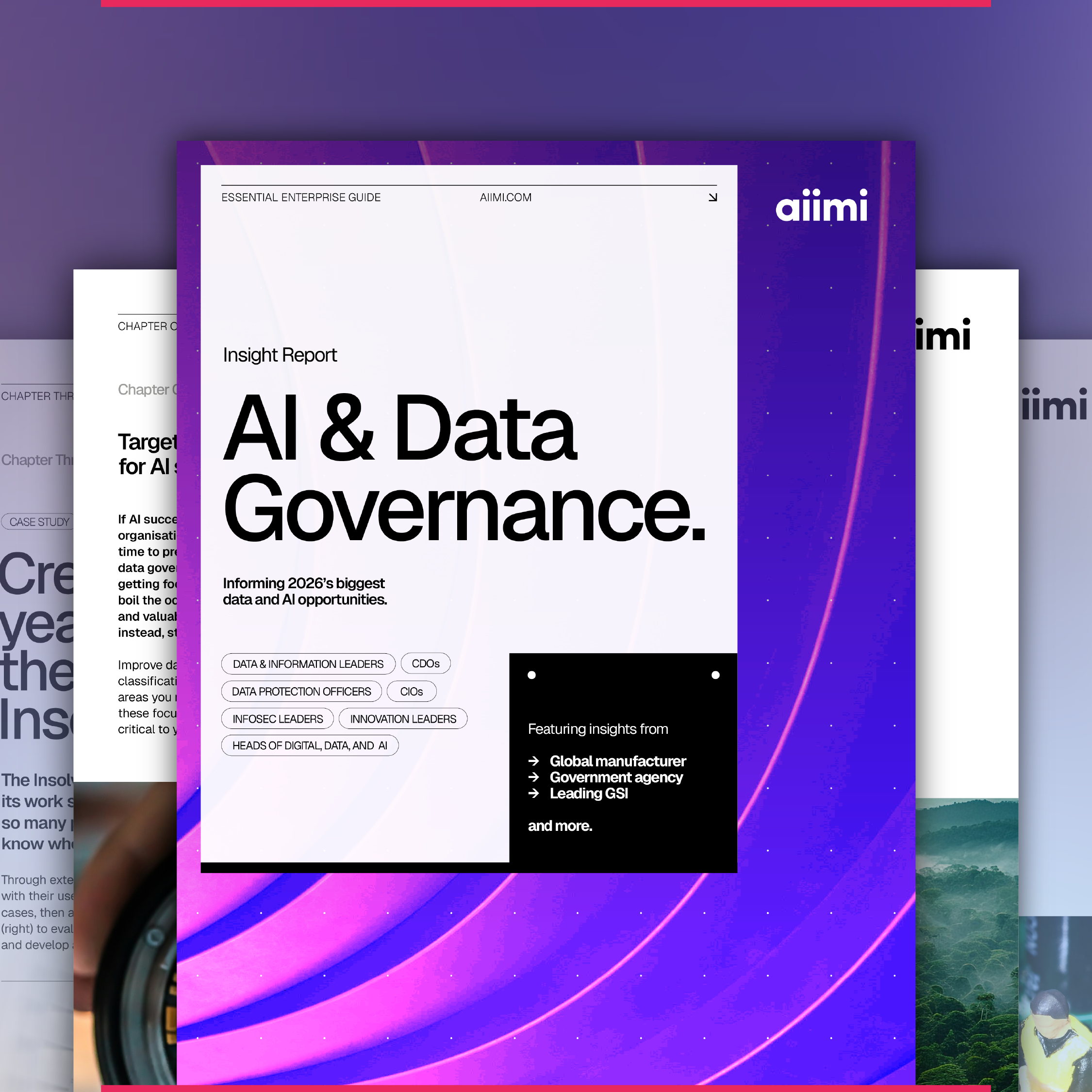The benefits of data governance in the age of AI: delivering trust, supporting innovation

It’s time to change the conversation around data governance. Responsible for managing security and reducing risk, data governance has traditionally been seen as the role that tells you what you can’t do with data. But what if it’s in fact the key to unlocking what you can do with data? In the age of AI, it’s now more important than ever to seize the benefits of data governance, if we’re to extract more value from data, innovate faster, and make better decisions.
Keeping up with the pace
The past two decades have seen exponential growth in the use of data to drive insights and decision-making. Data science, exploration, and analysis are increasingly at the heart of everything we do, driven by advances in AI and machine learning. In McKinsey’s latest annual Global Survey, 40% of respondents said their organisations will increase their investment in AI overall because of advances in generative AI.
This growth has developed at a much faster rate than the governance surrounding it. And that’s only natural – things evolve organically, then rules, policies, and processes are put in place, and the innovation party is over.
But if data governance can find a way to be just as flexible and fast-moving, then there’s an opportunity for innovation and rules to co-exist; to increase the value of data, without hampering discovery. So how does data governance keep up with the rest of the data science world? It needs to make use of the very tools that are driving that pace: AI and machine learning.
Good data governance in the age of AI
One of the chief benefits of data governance is its essential role in protecting information and reducing risk. If you’re making decisions using information you can’t trust, then those aren’t the right decisions. And the explosion of generative AI has brought new risks, as businesses start to divest some of that responsibility. We’ve previously highlighted the risks of placing private corporate information outside of your data governance safety net when using public LLMs like ChatGPT for business, versus the benefits of private LLMs like Llama 2 for business, which can be run securely offline.
It’s difficult to think of another industry where almost anyone who can develop or analyse something could wield so much power unchecked. Given the lack of regulation, there’s huge potential to fall foul of policies that are largely a post-event response to a data breach or abuse. As we discussed in a recent blog, the risks of edge AI only compound the data governance problem – if nothing is connected, there’s no cohesive governance.
By ensuring data is of a certain standard, that it’s accurate, timely, and relevant, data governance empowers its users to make the right decisions. Today, good data governance strategy also means looking after that data in an easy, accessible, and agile way. This is where AI and machine learning go from being part of the challenge to part of the solution. AI and machine learning models are great at finding patterns and spotting anomalies in large data sets. Beginning with automated process mining and automated data discovery, AI models can enhance the capability of data governance teams to identify processes and data that have flown under the radar of data governance.
Another key area where AI and machine learning can help to drive the benefits of data governance is data cataloguing and classification – automatically generating business context, metadata, and relationships for data stewards to review and approve. Using an AI-driven data governance approach, data governors are freed up to focus on rules that flex with the breadth and speed of data science. They’re also able to monitor compliance at enterprise scale, ensuring the governance is still relevant to the need and that changes are easy to make when necessary.
Data governance vs data management
At Aiimi, we believe everyone should be a data manager; we should all care about the data we capture, process, and share. But managing data is different from governing it. Data governance is where we create and establish the frameworks that help us all manage data in the right way. So, while we should all question where data comes from before using it, with good data governance in place that’s not an onerous task.
Now more than ever, we need to be able to trust our data. To know that it’s of the highest quality and that it comes from sources that have also taken good care of it. As long as that’s the case, then we can unlock the wide-reaching benefits of data governance, in that the insights and conclusions we come to will be the right ones. A firm foundation of trust enables better business decisions and also benefits the consumer, citizen, or employee, who will increasingly base their own decisions on how well you look after their data.
If trust will be the key commodity, then data governance is positioned to play a central role in this. When a data analyst, engineer, or scientist can trust that the work they’re doing is based on high-quality, accurate, timely information, their outputs immediately increase in value. In other words, if we get data governance right, we get even more value out of our investments in everything else, including data management.
Driving transformation
We should treat the shift in mindset around the benefits of data governance like any other digital transformation, so having an executive sponsor is an important factor in its success. By the same token, innovation projects that are backed by data governance are more likely to be supported and progressed by senior management, because they are de-risked and part of the critical path.
Through managing security and reducing risk, data governance makes space for innovation and paves the way for progress. It keeps things moving in the right direction by crystallising our thinking around what we can and should do. If we use AI and machine learning to balance trust with flexibility, we can access the full benefits of data governance, to increase the value of our data and everything we do with it, and ultimately enable better business outcomes. And that’s definitely something we all care about.
Stay in the know with updates, articles, and events from Aiimi.
Discover more from Aiimi - we’ll keep you updated with our latest thought leadership, product news, and research reports, direct to your inbox.
You may unsubscribe from these communications at any time. For information about our commitment to protecting your information, please review our Privacy Policy.



